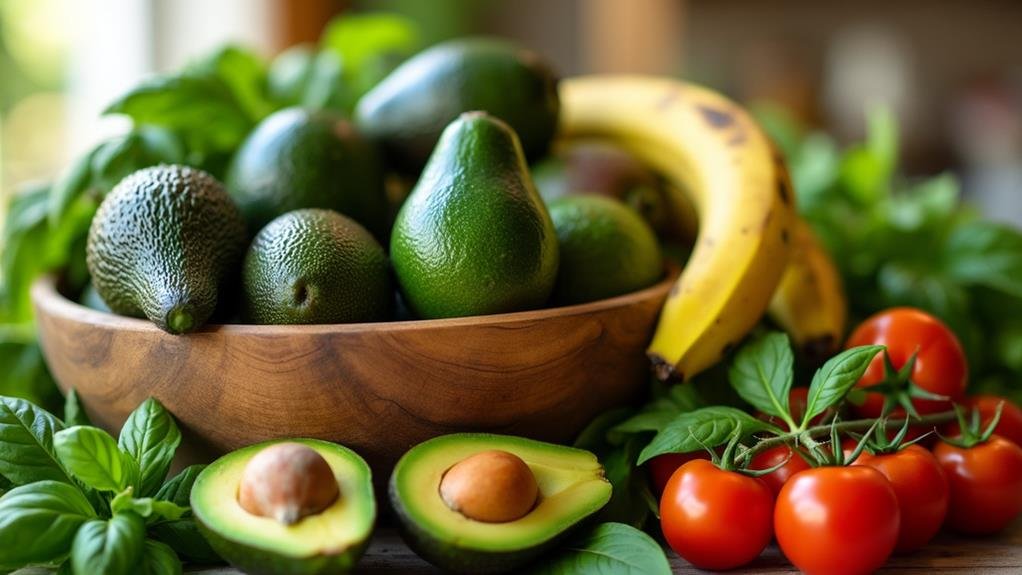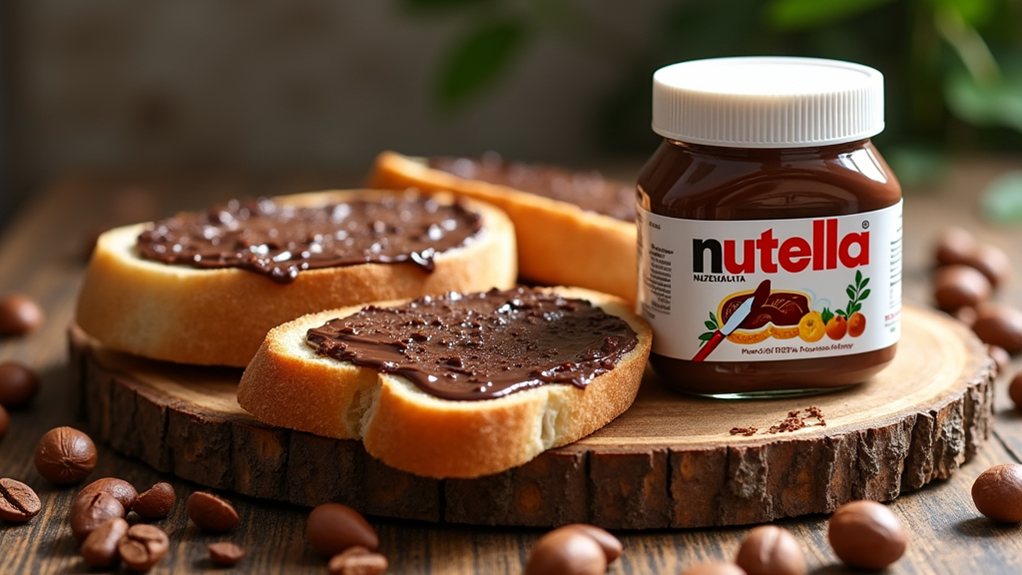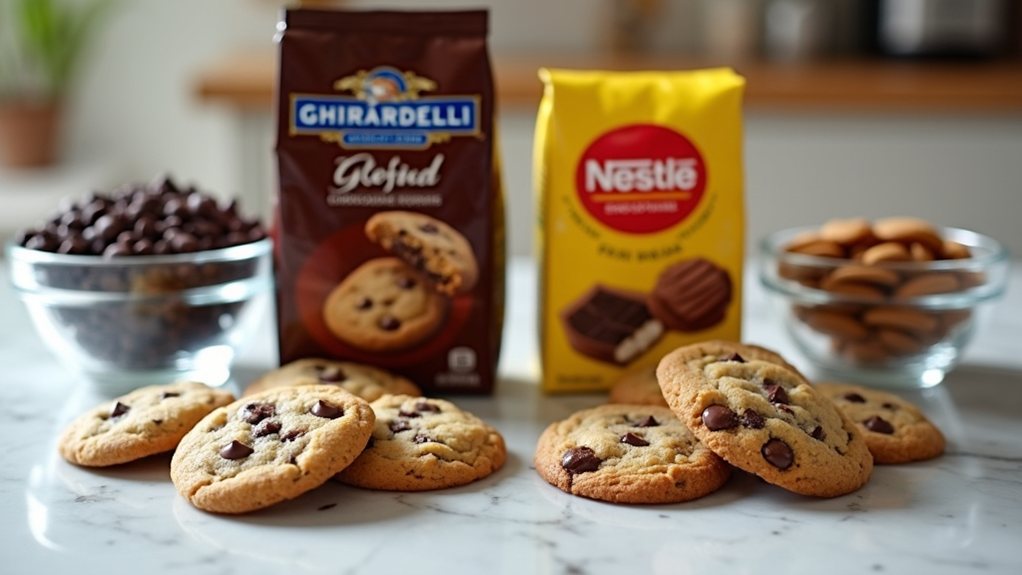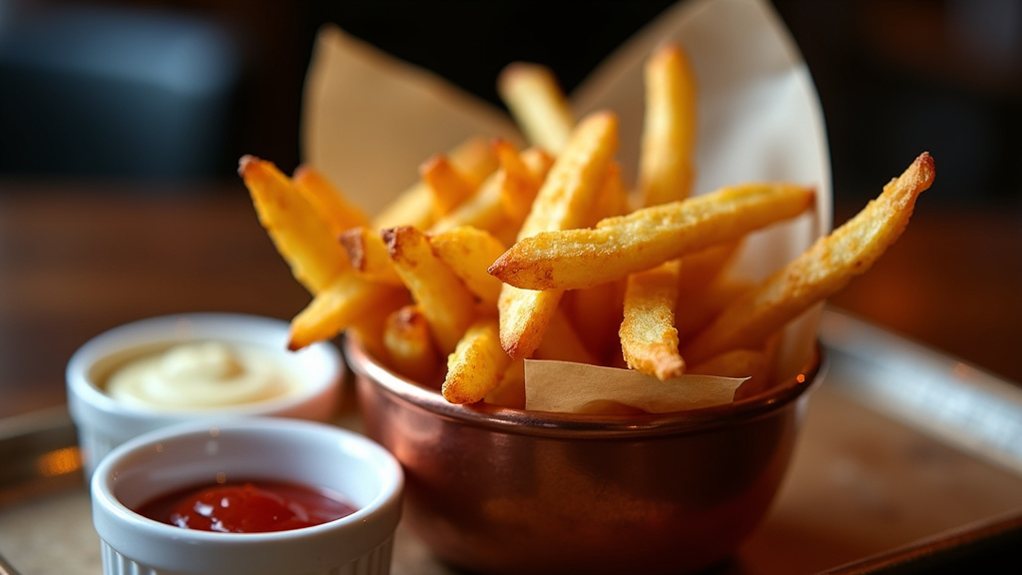Many unexpected foods can be safely stored without refrigeration, preserving their quality and taste. For instance, coffee retains its flavor when kept in a cool, dry place in an airtight container. Fresh herbs like basil, parsley, and cilantro do well outside refrigeration, especially when stored in water or damp paper towels. Tomatoes maintain their rich taste and texture at room temperature, while condiments such as ketchup and mustard benefit from natural preservatives. Many fruits and vegetables thrive when not chilled, as refrigeration can disrupt their ripening process. Exploring these options can enrich your culinary experience.
Coffee
Storing coffee properly is essential for preserving its freshness and flavor. Coffee, a beloved beverage, does not require refrigeration; however, poor storage can diminish its taste. To keep your coffee vibrant and aromatic, store it in a cool, dry location, away from sunlight. An airtight, opaque container, like a vacuum-sealed bag or a ceramic jar, is ideal for preventing moisture and odors from affecting the beans.
Many people mistakenly believe that refrigerating coffee is beneficial; in reality, it can absorb unwanted odors, which negatively impacts its flavor. To enjoy the freshest brew, consider buying coffee in small batches, ensuring that you savor its peak flavor without risking staleness.
Adopting these storage methods can elevate your coffee-drinking experience, allowing the rich aromas and complex flavors to shine in every cup. By understanding the best practices for coffee storage, you embrace a lifestyle free from unnecessary refrigeration while enhancing your daily rituals with the invigorating essence of freshly brewed coffee from brands like Starbucks or Peet's Coffee.
Fresh Herbs
Preserving the vibrant flavor of fresh herbs involves careful techniques for handling and storage. Certain herbs, like basil, thrive outside of refrigeration. Cold temperatures can cause basil leaves to blacken and lose their taste. Instead, treat basil as you would a cut flower: place the stems in water and change it every few days. This method keeps basil lively and flavorful, making it easy to incorporate into dishes directly from the water.
Similar techniques apply to other herbs, such as parsley and cilantro. You can store them in water or wrap them in a damp paper towel inside a breathable container. This method maintains their freshness while avoiding excess moisture that refrigeration can create. When used effectively, these storage methods not only extend the longevity of fresh herbs but also enhance their contributions in the kitchen. By embracing these techniques, home cooks can fully enjoy the diverse flavors that fresh herbs offer without relying on refrigeration.
Tomatoes

The delicate balance of flavor and texture in tomatoes is best maintained when they are stored outside of refrigeration. Refrigerating tomatoes disrupts their natural ripening process, causing the enzymes responsible for their taste and texture to become inactive. As a result, tomatoes often develop a mushy consistency and lose their vibrant flavor profile.
To preserve the quality of tomatoes, they should be kept at room temperature, away from direct sunlight. Placing them in a cool, dry area allows them to retain their firm texture and rich taste, which is vital for culinary applications ranging from salads to sauces.
When tomatoes are cut, however, they should be stored in the refrigerator, but only for a short period—ideally, use them within a couple of days to avoid significant flavor loss.
Choosing tomatoes at their peak ripeness improves the experience, but it's essential to handle them with care. By understanding the ideal storage conditions, you empower yourself to enjoy tomatoes at their best, embracing the full spectrum of flavors that they naturally offer without the constraints of refrigeration.
Condiments
Many popular sauces, like Heinz ketchup and French's mustard, are crafted to remain safe and flavorful when stored at room temperature. These items include components that function as natural preservatives, enabling them to stay stable without refrigeration. Heinz ketchup, for example, usually lasts about a month after being opened, while French's mustard tends to endure even longer because of its acidic nature.
The secret to the durability of these sauces lies in their recipe. Vinegar, sugar, and salt are typical ingredients in various sauces, each playing a role in the preservation process. For those who enjoy the taste of cool sauces, refrigeration is available, which can enhance their flavors. However, chilling is not essential for their safety or functionality.
Other sauces, such as Kikkoman soy sauce and Thai fish sauce, share similar beneficial traits. Both result from fermentation, which naturally prolongs their shelf life. When stored properly in a cool, dark environment, these sauces can elevate dishes without the necessity of refrigeration. Therefore, you can appreciate the convenience and flexibility of these flavor-boosting essentials while enjoying a kitchen that embraces the ease of not relying on unnecessary refrigeration.
Fruits and Vegetables

Storing produce effectively can prolong freshness and enhance flavor. Many types of produce prosper outside the refrigerator, where cold can disrupt their natural ripening processes. Proper storage helps maintain texture and taste, allowing for optimal enjoyment.
- Roma Tomatoes: Room temperature storage is ideal, as refrigeration can diminish flavor and lead to a mushy texture.
- Cavendish Bananas: These popular tropical fruits thrive on the countertop, as cold exposure can cause chilling injuries.
- Anjou Pears: Best ripened on the counter, these pears offer a delightful experience when they achieve the right softness.









